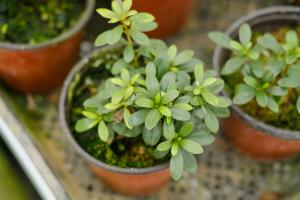Can Walnut Trees be Planted near Septic Fields?
Planting trees is a great way to add beauty and value to your property. However, planting trees near septic fields can be a cause for concern. If you are considering planting a walnut tree near your septic field, you may be wondering if it is a good idea. In this article, we will explore the pros and cons of planting a walnut tree near a septic field.
The Pros of Planting a Walnut Tree near a Septic Field
One of the primary benefits of planting a walnut tree near a septic field is the ability of the tree roots to absorb excess water. Tree roots play an important role in maintaining healthy soil conditions, and they can help to distribute moisture throughout the area. This can be especially important for septic fields, which require proper drainage and soil moisture levels.
In addition, walnut trees are known for their ability to produce a high-quality, nutritious nut. If you are interested in growing your own food, planting a walnut tree is a great option. You can also use the nuts to make your own walnut oil or to add flavor and texture to a variety of dishes.
The Cons of Planting a Walnut Tree near a Septic Field
While there are many benefits to planting a walnut tree near a septic field, there are also some potential risks to consider. One of the main concerns is the possibility of root intrusion into the septic system itself. If the tree roots grow too close to the septic tank or drain field, they can cause damage to the pipes or clog the system entirely.
In addition, walnut trees produce a chemical called juglone that can be toxic to some plants. If you plan to plant other vegetation near your septic field, you may want to choose plants that are resistant to juglone or avoid planting them altogether.
Tips for Planting a Walnut Tree near a Septic Field
If you decide to plant a walnut tree near your septic field, there are a few tips you can follow to minimize the risks and maximize the benefits. First, make sure you choose a location that is at least 50 feet away from the septic system to avoid root intrusion. You should also consider planting the tree on a raised bed or berm to improve drainage and reduce the risk of standing water.
It is also important to choose a variety of walnut tree that is less likely to produce juglone, such as the Carpathian or Persian walnut. These varieties are more tolerant of a wide range of soil conditions and are less likely to cause damage to other plants in the area.
In Conclusion
Planting a walnut tree near a septic field can be a great way to enhance the beauty and functionality of your property. However, it is important to weigh the pros and cons before making a final decision. With the right planning and care, a walnut tree can provide a wealth of benefits without causing harm to your septic system or other vegetation.

 how many times do yo...
how many times do yo... how many planted tre...
how many planted tre... how many pine trees ...
how many pine trees ... how many pecan trees...
how many pecan trees... how many plants comp...
how many plants comp... how many plants can ...
how many plants can ... how many plants and ...
how many plants and ... how many pepper plan...
how many pepper plan...































